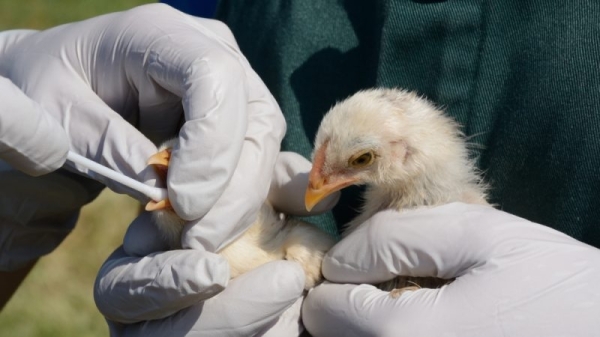EU says bird flu ‘spillover’ is unlikely but stricter surveillance recommended

After a case of transmission from cattle to a dairy worker in the US, the risk of infection for humans remains low, but vigilance must stay high, the European Commission and EU agencies on health and food safety told Euractiv.
On Monday 1 April, the news of a person in the US testing positive for highly pathogenic avian influenza virus (H5N1 bird flu), by exposure to infected dairy cattle raised concerns globally.
The US Centers for Disease Control and Prevention (CDC) recalled that this is the second case of the pathogen in the US after a person in Colorado caught the disease because of exposure to infected poultry.
As most human infectious diseases derive from pathogens that originally circulated in other animal species, the news from the US raised questions about the likelihood of the ‘zoonotic spillover’ of the pathogen, its adaption to humans.
“The risk of transmission of avian influenza viruses from animals to the general public is low,” a European Commission spokesperson told Euractiv, expressing reassurance about the high level of surveillance and biosecurity in the bloc.
The risk of infection with avian influenza viruses “is currently low for the general population and low-to-moderate for those people exposed to infected animals due to their occupation,” Angeliki Melidou, principal expert on respiratory viruses at the European Centre for Disease Prevention and Control (ECDC), told Euractiv.
The possibility that the virus can spread among humans is “unlikely”, she added, and the news from the US does not change this assessment, Melidou underscored.
ECDC and the European Food Safety Authority (EFSA) published today (3 April) a new report on the possible ‘Drivers and critical steps for an influenza pandemic due to avian influenza’.
After almost three decades of human exposure, the virus “has not acquired the mutations” needed for “airborne transmissibility between humans,” the EFSA expert Alessandro Broglia underlined.
Spreading in the EU and beyond
According to the latest EFSA-ECDC overview, the overall number of virus detections in birds is decreasing compared to previous years.
But the global circulation of the avian influenza viruses “and its presence in third countries” with biosecurity levels lower than the EU, can be “a risk for virus adaptation to mammals including humans,” said Broglia.
Although “difficult to estimate,” this risk requires “greater capacity for surveillance and response,” the expert added.
Several mammal species are susceptible to the circulating strain of avian flu. This is the case for foxes and minks, as well as pets such as cats.
This happened in Finland and Poland in 2023. All those cases were linked to contacts with infected birds.
If the avian influenza viruses acquire the ability to spread among humans, “large scale transmission could occur, given the naïve immune status of humans to H5 viruses,” the report of the two bodies recalls.
EFSA and ECDC recommend “enhancing surveillance” on humans and animals, “ensuring access to rapid diagnostics,” greater collaboration between animal and human health authorities, and implementing preventive measures, “such as vaccination”.
The vaccination of birds in the livestock sector is another option. But where applied “it is fundamental to accompany it with surveillance to monitor the evolution of the virus,” said Broglia.
Implementing “appropriate biosecurity” measures in poultry farms, such as “changing of footwear at the entrance, proper hygiene locker, no entry of pets in the poultry house,” can make a difference, the expert concluded.

Commission harmonises rules on animal vaccination to tackle bird flu
The European Commission has announced new rules to harmonise the vaccination of animals against the most serious animal diseases as part of efforts to address the largest epidemic of avian flu observed in the EU so far.
Read more with Euractiv




